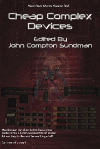It says something about the messed up world of telecom today that the “Connect America Fund” the FCC will vote on tomorrow has become the “what the heck are we going to do about IP-based interconnection” proceeding. In particular, the rather high-profile spat between AT&T and Comcast (andother cable companies) over access charges illustrates exactly the kind of cosmic cluster#@$! we predicted would happen if the FCC failed to classify broadband as a Title II telecom service. AT&T is100% right on the key argument: Comcast has the access charge regime it fought for and deserves. Letting Comcast collect access charges as if it were a traditional telecom provider subject to Title II, while shielding it from any actual oversight or obligations as a Title I information service, is nothing more than an undeserved windfall to the company that tore up the social contract in the first place. If they don’t like the outcome, then perhaps they should have thought about it before they declared Jihad on Title II.
More below . . . .






Tales of the Sausage Factory
A Personal Reflection on the FCC’s USF/ICC Reform Order
A Personal Reflection On The FCC’s USF/ICC Reform
Yesterday, the FCC approved an Order addressing about 10 years of accumulated undone work in the telecom world and at least starting work on the more serious issues – such as interconnection for IP-based services – that will govern the next ten years. I have, no surprise, plenty of personal opinion about the substance and I expect that when the Order is published I will have my share of things to say and that some of them will be quite scathing, skeptical and snarky. Nevertheless, it is important to pause first and reflect on why yesterday’s vote represents a real accomplishment for Genachowski and the Commission. Similarly, it is important to appreciate the context of the Order and the limitations on the agency imposed by law.
None of this negates the very real and substantive criticisms that I and others will have – particularly with regard to the self-inflicted wound over the FCC’s legal authority. I have no delusion that hard work and good will somehow transform poor policies into better ones. My appreciation for what the agency did right and its limitations under law do not blind me to the part that political influence plays, nor does it somehow make it more palatable to those who feel that the outcome will make jeopardize their livelihoods or that we missed significant opportunities to do better.
But it is just as poisonous to public policy when we focus only on its flaws and failures as when we excuse them. It is not simply a matter of basic fairness, or that decisionmakers are human beings who do better when praised for what deserves praise. I believe failure to recognize the achievements and limitations of the policy process makes one a less effective advocate and prevents one from seizing opportunities when they arise. This is neither bogus pragmatism that counsels surrender and diminished expectations, nor delusional Pollyannaism that insists we live in the best of all possible worlds. The world is messy and complicated, and policy reflects that.
So, all that said, the accomplishments and context of the Order below . . .
Read More »